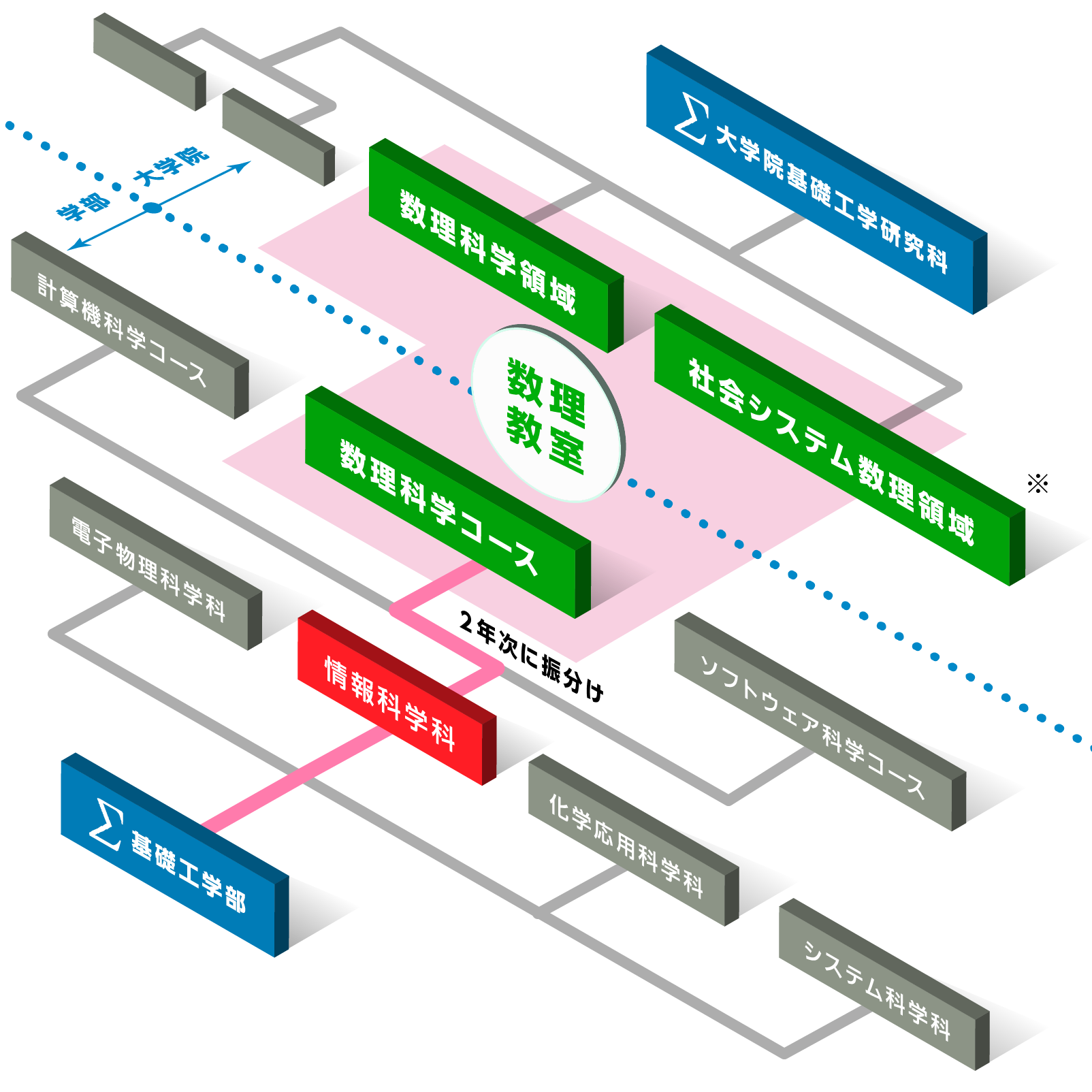 ※Faculty members belonging to the Area of Mathematical and Statistical Finance are members of the Mathematical Science Group.
※Faculty members belonging to the Area of Mathematical and Statistical Finance are members of the Mathematical Science Group.
Mathematical Science is a discipline that attempts to approach reality through the development and analysis of mathematical models that represent phenomena. For this purpose, advanced mathematics and computer applications such as computer simulation, computer graphics, and research on various algorithms are essential. Specifically, we focus our research and education on differential equations, applied analysis, statistical analysis, data science, statistical inference making, probability modeling, and probability and mathematical finance.
1964:Dr. Kenjiro Shoda, the first dean of the school, conceived the idea of a mathematical department consisting of three laboratories on applied mathematics, statistics, and applied mechanics.
Involved in education of undergraduate mathematics and graduate mathematics specializations.
1965:Mathematical Programming Laboratory was newly established, and the Mathematical Science Department expanded to four laboratories.
1994:With the closure of the Liberal Arts Department at the University of Osaka, two professors from the Liberal Arts Department in charge statistics joined the Department of Mathematical Science, expanding it to six laboratories.
1996:Upon the focus on the importance of graduate school, the Department of Communication Mathematics is established within the Department of Information and Mathematical Sciences. At the same time, the Department of Mathematical Sciences is reorganized into the Department of Information and Computer sciences. The Department of Mathematics is expanded to seven laboratories.
2003:With the reorganization of the graduate school, four laboratories (Differential Equation Group, Applied Analysis Group, Statistical Analysis Group, Data Science Research Group) were established in the Division of Mathematical Science, and three laboratories (Statistical Inference Making Goup, Probability Model Research Group, Probability and Mathematical Finance Group) were established in the Division of Mathematical Science for Social Systems and Mathematical and Quantitative Finance.
Thank you for visiting the website of the Mathematical Science, Department of School / Graduate School of Engineering Science, The University of Osaka. In addition to the Mathematical Science Course, the Mathematical Science Class consists of Division of Mathematical Science and Division of Mathematical Science for Social Systems of the Graduate School of Engineering Sciences. It covers the research fields of mathematical models, mathematical finance and data science.
After learning the basics of information science in the first year of the Department of Information and Computer Sciences, students are divided into courses in the second year, Computer Science Course, Software Science Course, and Mathematical Science Course. Course assignment will be determined in the first year based on the student's wishes.
The Mathematical Sciences Course focuses on developing the ability to analyze natural and social phenomena using mathematics. In addition to courses in analytical sciences, there is a full range of courses related to statistics, probability theory, and applied mathematics. Seminars begin in the third year, and specialized education is provided by several faculty members in each laboratory. After graduating, students went on to graduate school and found employment in a wide variety of companies, including IT-related companies, pharmaceuticals, finance, insurance, and manufacturing.
In recent years, the real world is looking for students who have acquired the ability to solve social problems based on mathematical science and technology. The faculty members are engaged in research and education in these various fields of mathematical science in both theories and their practical applications. We hope to make a contribution to mathematical research and education while remaining aware of our social mission. We would appreciate your continued support.